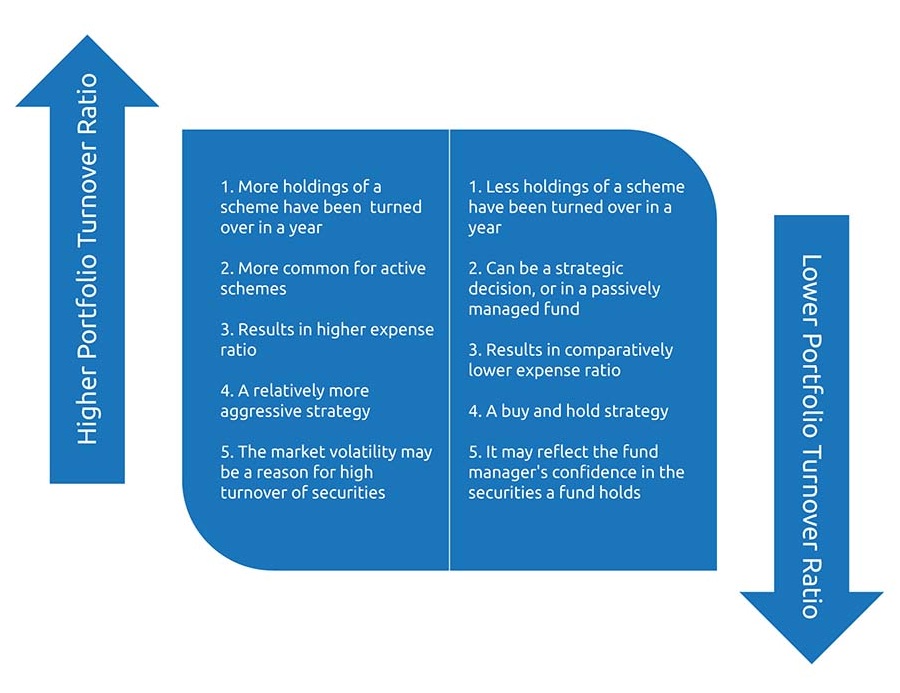
High turnover often results in increased costs for the fund due to the payment of spreads and commissions when buying and selling stocks increased costs impact a fund's return overall. The Significance of Turnover RatioĪs a technical indicator, the turnover ratio itself has no intrinsic value - high turnover ratios are not necessarily "bad," nor are low turnover ratios necessarily "good." But investors should be aware of the consequences of turnover frequency. An aggressive small-cap growth stock fund will generally experience higher turnover than a large-cap value stock fund. On the other hand, a bond fund will often have high turnover because active trading is an inherent quality of bond investments.Īctively managed mutual funds with a low turnover ratio reflect a buy-and-hold investment strategy those with high turnover ratios indicate an attempt to profit by a market-timing approach. For example, a stock market index fund usually will have a low turnover rate since it duplicates a particular index, and the component companies in indexes don't change that often. The turnover ratio varies by the type of mutual fund, its investment objective, and/or the portfolio manager's investing style.

So a conservative-minded equity investor might target funds with turnover ratios under 50%. For example, the average turnover ratio for managed mutual funds is 75–115%. Actively managed mutual funds with a low turnover ratio reflect a buy-and-hold investment strategy those with high turnover ratios indicate an attempt to profit by a market-timing approach. The turnover ratio or turnover rate is the percentage of a mutual fund or other portfolio's holdings that have been replaced in a given year. The turnover ratio or turnover rate is the percentage of a mutual fund or other portfolio's holdings that have been replaced in a given year (calendar year or whichever 12-month period represents the fund's fiscal year).įor example, a mutual fund that invests in 100 stocks and replaces 50 stocks during one year has a turnover ratio of 50%.

All topics ▶ Investing ▶ Mutual Funds ▶ Mutual Fund Essentials


 0 kommentar(er)
0 kommentar(er)
